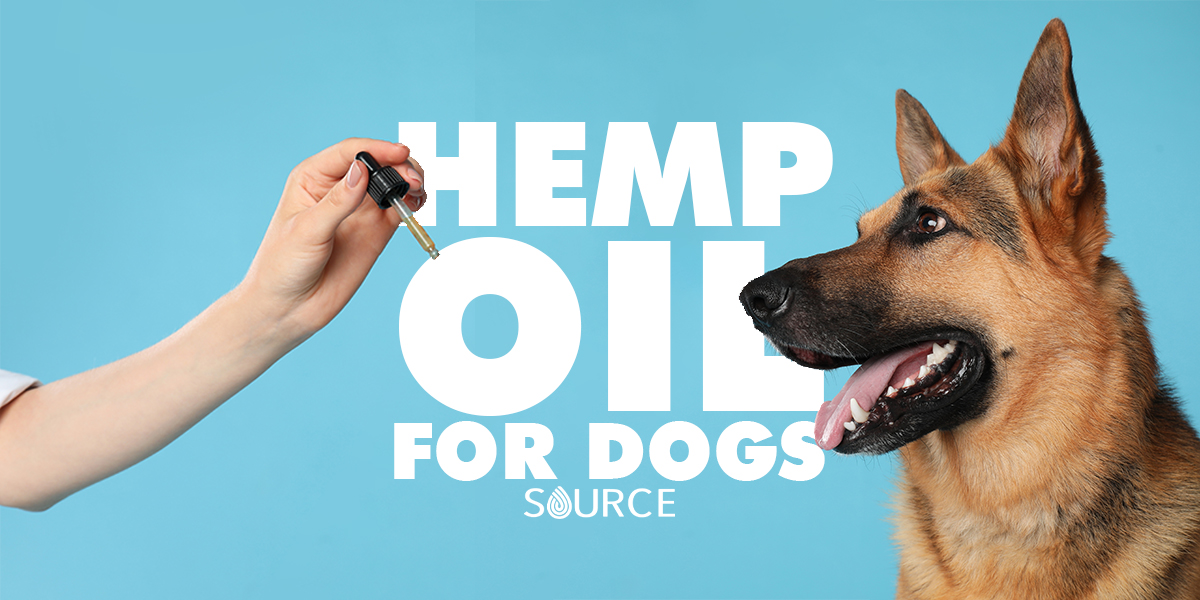CBD Oil for Pets
The Many Uses and Benefits of Hemp Oil for Dogs
Hemp oil, hemp seed oil, cbd oil… There’s often a lot confusion surrounding the hemp plant and which product is good for pets, and why.
And that confusion is understandable. All of these different things come from the hemp plant. And the term hemp oil itself is used by different people in different ways. Sometimes, it means CBD oil, but in other cases, it means hemp seed oil, which is a totally different product.
So, what about hemp oil for dogs (or, to clear a little of the confusion, hemp seed oil for dogs)? Is it beneficial? Is it safe? And what’s the difference?
Note: for clarity, in this blog, when we say hemp oil, we’re referring only to hemp seed oil – not CBD oil!
CBD Oil vs. Hemp Oil for Dogs
The main difference between CBD oil and hemp oil for dogs (or humans for that matter), is where it comes from.
- Hemp oil comes from the seeds of the hemp plant.
- CBD oil comes from the leaves, flowers, and stalks of a hemp plant.
The most notable difference between the two, as far as why they’re chosen, is the CBD content. The leaves and flowers of the hemp plants are where you find the beneficial cannabinoids and terpenes, including CBD. Oil extracted from the leaves and flowers of such plants is therefore rich in CBD. The seeds contain none (or virtually none), so you won’t find them in hemp oil.
However, both hemp oil and CBD oil, have their own health benefits.
And thankfully, both are perfectly safe for your canine pal!
The Benefits of Hemp Oil for Dogs
In contrast to CBD oil, which is typically used for its therapeutic value, hemp oil is more widely celebrated for its nutritional value.
Hemp seed oils are rich in:
- protein
- calcium
- fiber
- vitamins
- minerals
- omega-6 and omega-3 fatty acids
And these contribute to the many benefits of hemp oil for your pup’s overall health!
1. Skin Health
Hemp oil is excellent for skin health and for assisting with various skin issues. It is super hydrating, and is easily absorbed by the skin, improving the skin’s barrier to lock moisture in. This makes it ideal for dry skin.
It can be used topically to help with minor skin abrasions or on itchy skin. It also soothes inflammation and helps with skin growth.
2. Heart Health
Hemp seed oil contains an omega-6:omega-3 ratio of 3:1, which is ideal. These essential fatty acids reduce cholesterol levels in the blood due to their β-sitosterols content, helping prevent heart disease. The Gamma-Linolenic Acid (GLA) in hemp oil also promotes heart health by helping to remove plaque from blood vessels and cell membranes. Plus, the arginine in hemp oil contributes to nitric acid production, which helps to relax and dilate blood vessels, reducing blood pressure and helping prevent heart disease.
3. Gut Health
The omega-3 essential fatty acids in hemp oil synthesize compounds that regulate hormones and digestive juices in the body. They nourish the good bacteria in the gut, which help with everything from improving digestion to strengthening the immune system!
These fatty acids also have anti-inflammatory properties that reduce inflammation in the gastrointestinal tract and can help relieve digestive issues like inflammatory bowel disorder.
Tip: To give your dog hemp oil, go for 1 tsp for each pound of food. To use topically, simply apply a little to the affected area.
How to Tell the Difference?
Now, again, with all of the confusion, it can sometimes be tough to tell the difference between the various hemp products out there. That’s why it’s vital to understand what you want and how to find it.
Some manufacturers will intentionally aim to confuse, selling hemp oil (with little to no CBD) as CBD oil, so it’s important to be able to spot the trustworthy products.
Sometimes a quick glance will tell you right away. Often the price is a good indication, as CBD oil is naturally more expensive than hemp oil. The size of the bottle can also help you tell the difference. Hemp oil often comes in a much larger bottles.
Other times, though, you’ll have to do some digging.
The best way to do this is check the Certificate of Analysis. Any reputable CBD company will provide a COA that outlines in detail exactly what’s in the bottle. This includes the total amount of cannabinoids (including CBD).
Always be sure that, no matter what you’re looking for, you’re getting it.

